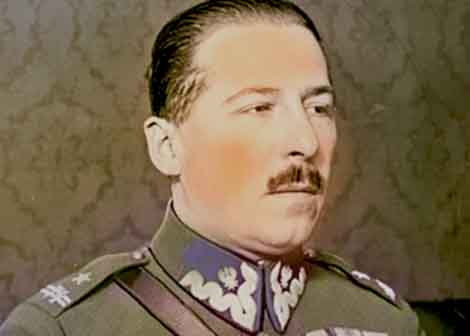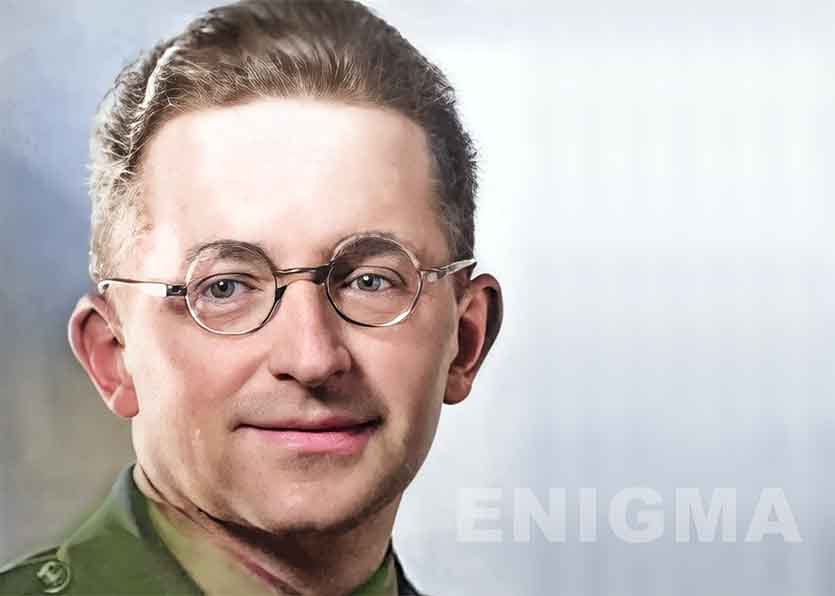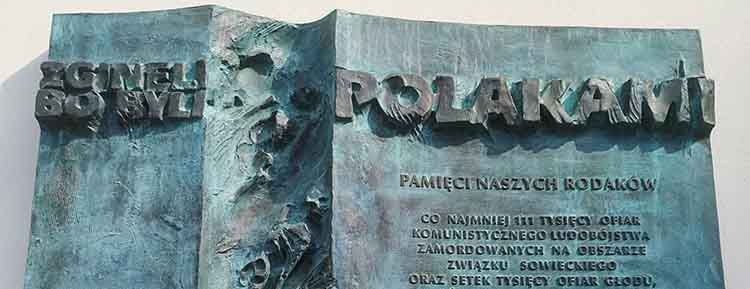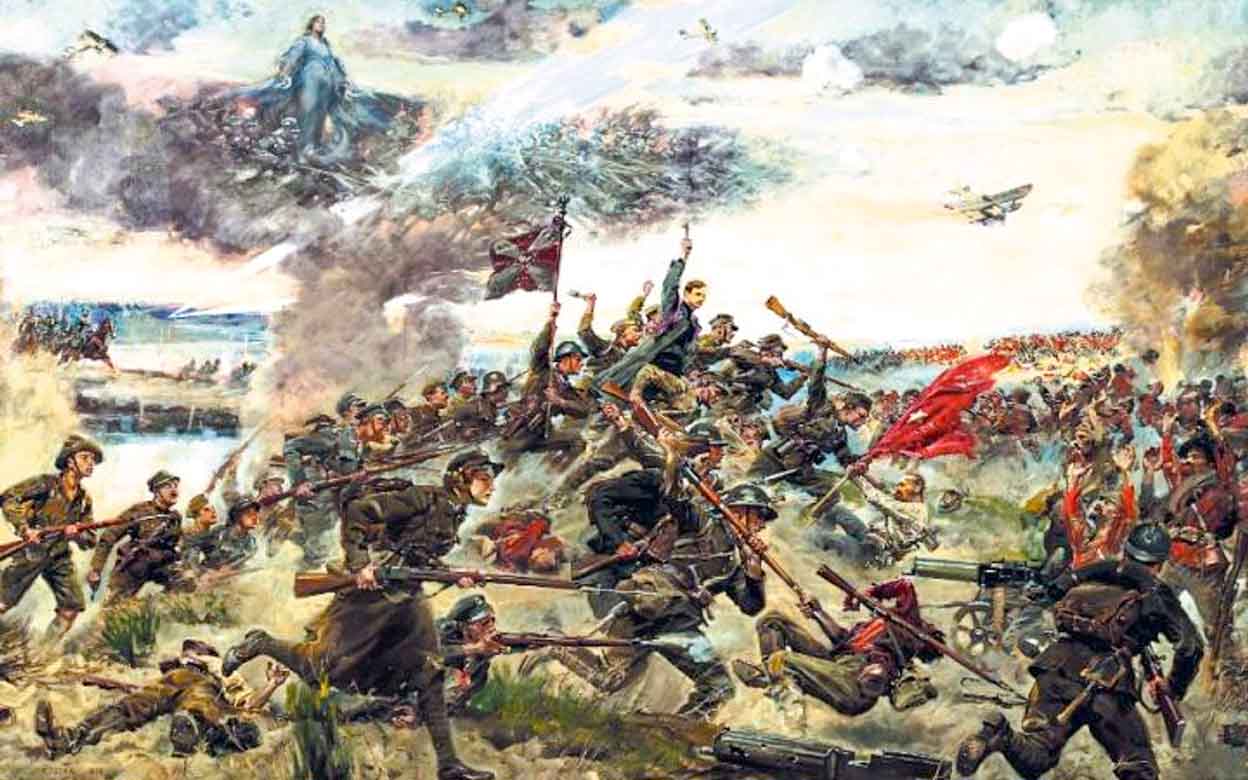The 103rd anniversary of the Battle of Warsaw, which went down in history as a great victory of independent Poland over the Bolsheviks, has just passed. This battle took place between August 13 and 25, 1920 and is still called the "Miracle on the Vistula".
The victory of the Polish Army over the advancing Red Army troops towards Warsaw, the capital of already independent Poland, not only allowed it to preserve its independence, but also radically changed the intentions of the Soviets to start a communist revolution not only in Poland but also throughout Western Europe. Europe owes much to Poles here.
There would be no "Miracle on the Vistula" if not for the famous defense plan developed by the brilliant strategist and then commander of the Polish Army, General Tadeusz Jordan Rozwadowski. It was he who devised the plan of the victorious battle and commanded the Polish army until victory.

General Tadeusz Jordan Rozwadowski (Source: Wikipedia)
Although Marshal Piłsudski claimed the merits of this victory to himself, the historical facts show that he was absent at the beginning of the fight, and in its final stage, he participated in only a fragmentary section of it.
It is also impossible to ignore the shocking fact that on August 12, 1920, Józef Piłsudski submitted a letter with his resignation from the functions of the Chief of State and Commander-in-Chief to the Prime Minister of the Government of National Salvation, Wincenty Witos.
Immediately afterwards, the marshal left for Bobowa, where his lover (and later wife) Aleksandra Szczerbińska and their two daughters were staying. The marshal returned from Bobowa to Puławy only on August 14.
Gen. Rozwadowski, not knowing about Piłsudski's resignation (Witos hid the letter of resignation in a drawer and did not make this fact public), continued to treat the Marshal as the Commander-in-Chief.
General Tadeusz Rozwadowski, as the author of the Warsaw battle plan, was completely loyal to Józef Piłsudski. During the Polish-Bolshevik war, he was the chief of staff of the Polish Army and it is his signature that appears under the famous order No. 10,000, which changed the main concept of the Warsaw battle.
It was General Rozwadowski who convinced the marshal that instead of defending only from the south, the Soviets should be attacked simultaneously from two sides: from the south and the north.
An important decision was also (again the idea of General Rozwadowski) to speed up the attack from the Wieprz River from 17 to 16 August. This resulted in the withdrawal of the Red Army troops. This time it was the Poles who chased the Soviets.
It is also worth mentioning the little-known fact that it was thanks to the initiative of General Tadeusz Rozwadowski that the air squadron of Tadeusz Kosciuszko came to being. It was created by the American aviator Merian C. Cooper.
Gen. Rozwadowski and Capt. Cooper met in 1919, when the general commanded the heroic defense of Lviv and the captain delivered food to Lviv, which was besieged by the Ukrainians.
After demobilization, American airmen reported to Polish outposts to support Poles in the fight against the Soviets. In 1920, American airmen made 190 sorties supporting Polish infantry divisions from the air.
The battle won, its chief strategist and commander pushed into the shadows. Marshal Józef Piłsudski triumphs and attributes the victory to himself. — This was the actual state of affairs after the end of the Battle of Warsaw.
Gen. Rozwadowski, with his typical humility and elegance in his conduct, did not demand the honors due to him for defending the capital, accepting a quiet, supporting role in this great victory.
After the end of the Polish-Bolshevik war, General Rozwadowski assumed the new function of Inspector of the Second Army. He was also promoted to the rank of lieutenant general.
From 1921, he reformed and trained the Polish cavalry. In 1921 he was awarded the Silver Cross of the Military Order of Virtuti Militari and in 1922 the Commander's Cross of the Military Order of Virtuti Militari.
Unfortunately, the great merits of the general and his strong military position became a potential threat to Marshal Piłsudski's political plans.
In May 1926, Marshal Józef Piłsudski carried out an armed coup d'état in Poland. Fighting between government forces and supporters of the marshal broke out in the capital, from 12 to 15 May, and resulted in the deaths of 379 people, including 164 civilians. Over a thousand people were injured.
Gen. Rozwadowski was appointed defender of the constitutional organs of the Polish state against Piłsudski's assassins. During the fight for the capital, a large part of the Polish army units went over to the side of the assassins. The May coup ended in a complete victory for Marshal Piłsudski and his supporters.
General Tadeusz Rozwadowski was arrested in Warsaw on Piłsudski's order and then transported to the Military Investigation Prison in Antokol, in Vilnius. He was held there in disgraceful conditions, in a dirty cell without heating. He was deprived of health care and any contact with his family was forbidden.
Only after a year, on May 17, 1927, General Rozwadowski was released from detention. He never received an official indictment. The general came out of detention as a seriously ill wreck of a human being, broken by the unjust treatment.
He died shortly afterwards, on October 18, 1928. He was buried according to his wishes among the soldiers he once commanded at the Cemetery of the Defenders of Lwów.

Funeral of Lieutenant General Tadeusz Jordan Rozwadowski in Warsaw. The carrying out of the coffin from the church of St. Barbara in Koszyki, October 1928 (Source: National Digital Archives)
The Sanacja authorities did not agree to an autopsy of the general's body, and it was taken in unexplained circumstances from the tomb in Lviv. The grave is empty and it is not known where the earthly remains of the general are to this day. There are many clues pointing to an alleged murder of General Rozwadowski.
One of them is the theory that the walls of the cell (in which he was imprisoned for more than a year after the May Coup) were painted with poisonous paint containing arsenic. The second theory is that he was given a sandwich with finely chopped horsehair, which was supposed to cause an incurable stomach disease.
These are unproven clues. However, it is an undeniable fact that the Sanation authorities had no intentions of honoring the general's merits even after his death. His funeral in Lviv was intentionally organized in the morning to minimize the number of mourners attending it.
Nevertheless, crowds came to bid farewell to the general, and planes circled over the funeral procession. In this way, pilots loyal to Rozwadowski paid tribute to the memory of the general. For this symbolic act, the commander of the Lviv Air Force was relieved from his position.
More than 100 years have passed since the memorable Battle of Warsaw and the defender of the homeland still has no place in national memory.
In the capital of Poland, which he defended with such dedication, one can look for monuments to General Rozwadowski in vain. He was doomed to oblivion. Warsaw councilors rejected a petition to build a monument to the general in the capital. There is also no image or even a mention of General Rozwadowski's merits for Poland in the Polish Museum of America, which I recently visited in Chicago.
In 1922, the bust of General Tadeusz Rozwadowski was unveiled in Lubliniec, at the headquarters of the elite Commando Military Unit.
A great patriot, General Tadeusz Jordan Rozwadowski, never sought honors or fame, because deeds were most important to him, and it is through them that all his greatness is revealed. However, it is worth passing on the knowledge about his glorious merits to the young generation and the historical truth will sooner or later break through the conspiracy of silence.
Translation from Polish: Andrew Woźniewicz.










